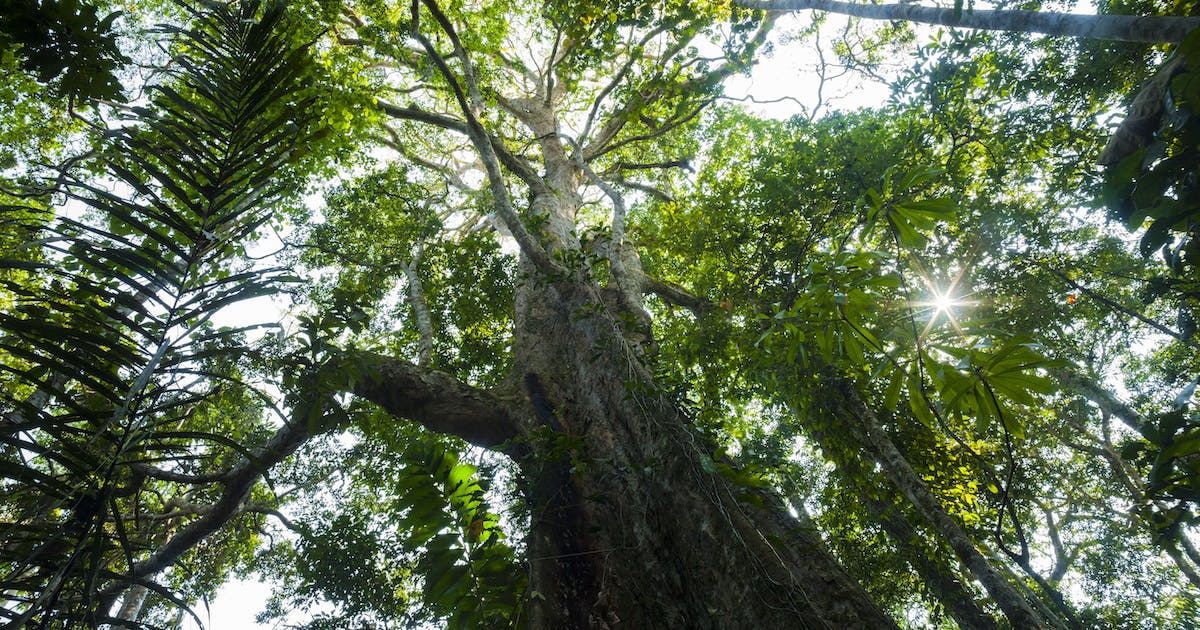The government of Peru signed a deal on Thursday to redirect more than US$ 20 million it owes to the United States into the conservation of some of the most biodiverse areas on Earth.
Funds from the debt-for-nature swap will protect three priority areas in the Peruvian Amazon, which cover roughly 10 percent of the country, by establishing parks and protected areas, as well as improving the livelihoods of Indigenous peoples and local communities that are guardians of vast swaths of Amazonian lands.
Conservation International and other environmental organizations provided a total of US$ 3 million to support the debt swap.
“Today’s debt-for-nature swap is a historic moment for Peru, a crucial signal from the United States government and a positive harbinger for the future of conservation as we pursue innovative ways to protect — and properly value — the nature that sustains us all,” said Conservation International CEO M. Sanjayan in a statement.
Peru’s deal was made possible by the 1998 Tropical Forest and Coral Reef Conservation Act, which allows countries to reduce their debt to the U.S. in exchange for commitments to conserve forests and coral reefs. In the 25 years since its adoption, the act has supported 22 swaps in 14 countries, generating more than US$ 380 million for conservation, while helping to protect more than 28 million hectares (68 million acres) of tropical forest.
Debt-for-nature swaps aim to alleviate two problems for developing countries: heavy debt burdens and a lack of funding for conservation. The concept was introduced by renowned ecologist Thomas Lovejoy, a former Conservation International board member, in 1984 amid the Latin American debt crisis. In 1987, Conservation International brokered the first swap in Bolivia — helping to write off US$ 650,000 of the country’s debt in return for commitments to conserve a sprawling 1.6 million hectares (4 million acres) of tropical rainforest in the heart of the Amazon Basin.
Since then, about 140 debt-for-nature agreements, both those between governments and those among governments and private lenders, such as banks, have been struck globally — becoming a mainstay of conservation, with billions of dollars in funding being made available for environmental protection. These swaps took on added significance during the COVID-19 pandemic, as many debt-vulnerable countries weathered economic troubles while shifting their funding priorities away from environmental protection.
“There’s a growing recognition that many countries that would like to support conservation can’t because of financial constraints, including burdensome debt,” said Andrew Schatz, a senior legal adviser at Conservation International who worked on the Peru deal. “Debt-for-nature swaps give them that chance.”
In recent years, debt-for-nature swaps have grown substantially larger, mainly through deals that restructure countries’ debt to private lenders because of the high risk of default. They are increasingly a way for countries to alleviate debt and free up resources to stem deforestation. For example, in May, Ecuador struck the largest debt-for-nature deal to date with the help of Credit Suisse, directing millions for conservation in the Galapágos Islands.
As global commitments to protect and restore nature gain ground, the money generated from debt-for-nature swaps can help address the persistent gap in funding to support these efforts. A recent United Nations report found that the world will not reach its climate and biodiversity goals unless financing more than doubles — from the current US$ 154 billion a year to US$ 384 billion a year by 2025.
“Finance is the linchpin for climate and biodiversity action,” Schatz said. “Debt-for-nature swaps boost that pool of funds and open the door to conservation that wouldn’t have been possible otherwise.”
The global law firm DLA Piper, through its nonprofit affiliate, New Perimeter, and DLA Piper Peru provided pro bono legal support for this debt-for-nature swap.
Mary Kate McCoy is a staff writer at Conservation International. Want to read more stories like this? Sign up for email updates. Also, please consider supporting our critical work.

